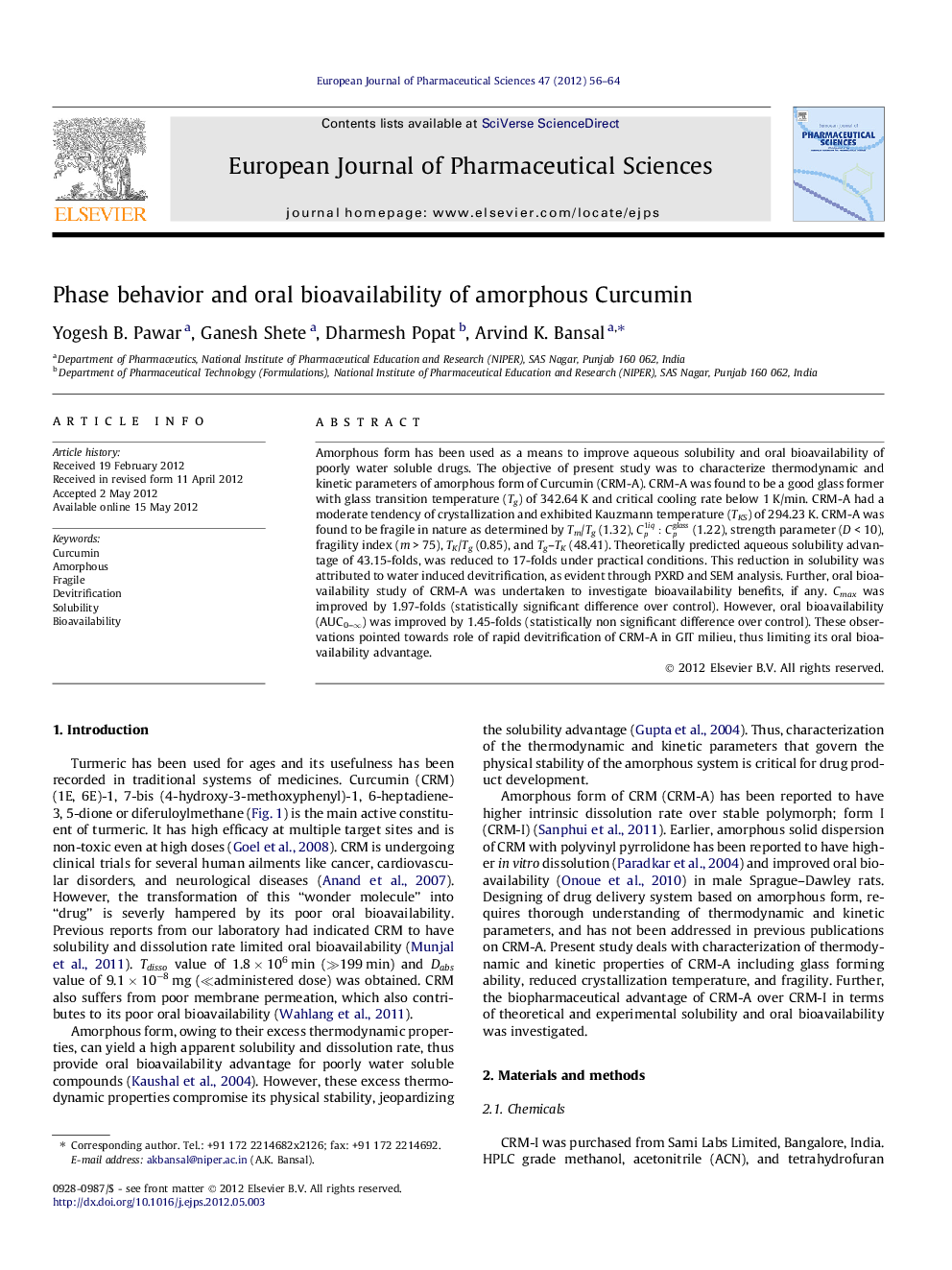| Article ID | Journal | Published Year | Pages | File Type |
|---|---|---|---|---|
| 2481322 | European Journal of Pharmaceutical Sciences | 2012 | 9 Pages |
Amorphous form has been used as a means to improve aqueous solubility and oral bioavailability of poorly water soluble drugs. The objective of present study was to characterize thermodynamic and kinetic parameters of amorphous form of Curcumin (CRM-A). CRM-A was found to be a good glass former with glass transition temperature (Tg) of 342.64 K and critical cooling rate below 1 K/min. CRM-A had a moderate tendency of crystallization and exhibited Kauzmann temperature (TKS) of 294.23 K. CRM-A was found to be fragile in nature as determined by Tm/Tg (1.32), Cp1iq:Cpglass (1.22), strength parameter (D < 10), fragility index (m > 75), TK/Tg (0.85), and Tg–TK (48.41). Theoretically predicted aqueous solubility advantage of 43.15-folds, was reduced to 17-folds under practical conditions. This reduction in solubility was attributed to water induced devitrification, as evident through PXRD and SEM analysis. Further, oral bioavailability study of CRM-A was undertaken to investigate bioavailability benefits, if any. Cmax was improved by 1.97-folds (statistically significant difference over control). However, oral bioavailability (AUC0–∞) was improved by 1.45-folds (statistically non significant difference over control). These observations pointed towards role of rapid devitrification of CRM-A in GIT milieu, thus limiting its oral bioavailability advantage.
Graphical abstractFigure optionsDownload full-size imageDownload high-quality image (79 K)Download as PowerPoint slide
